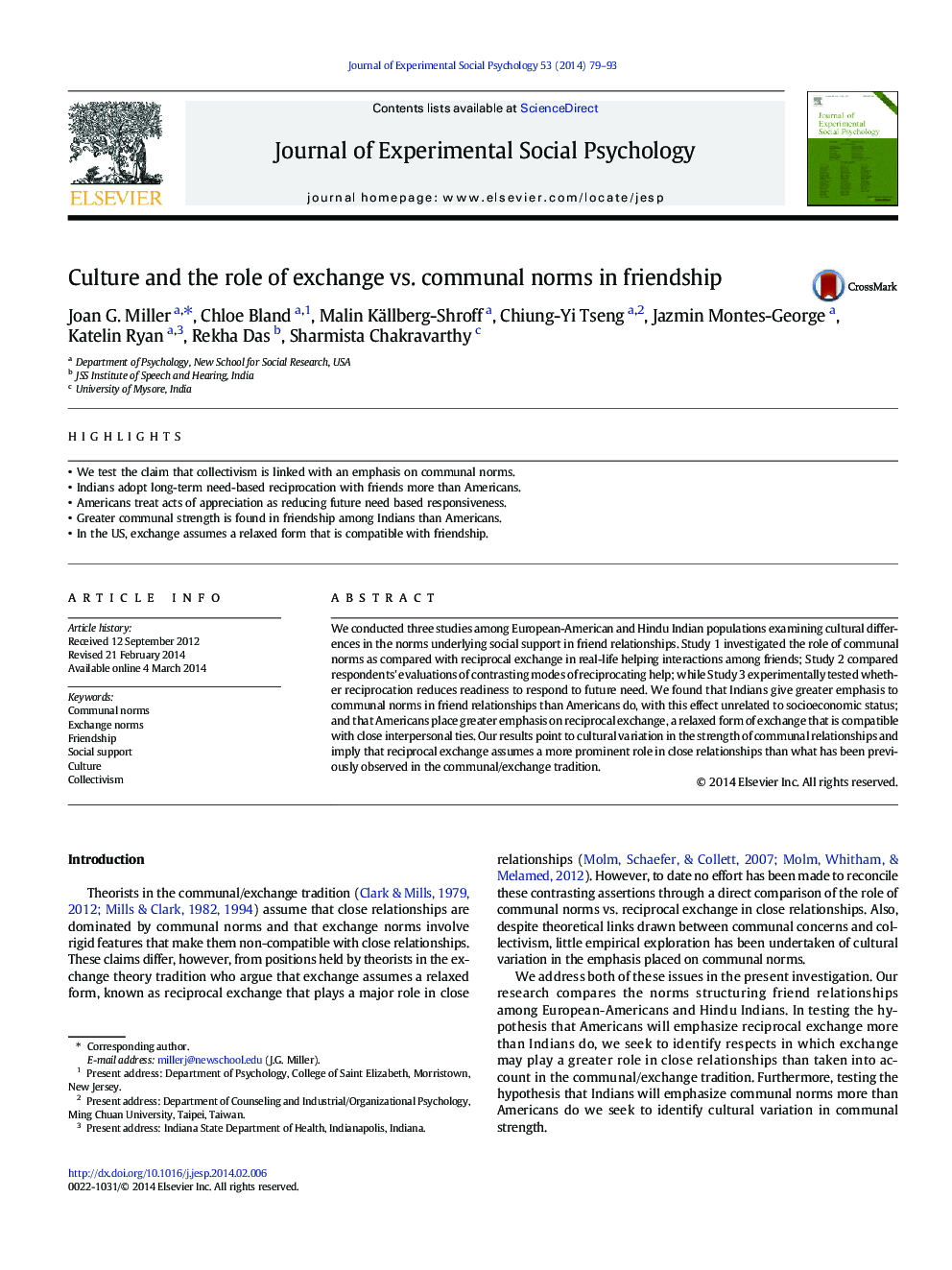| Article ID | Journal | Published Year | Pages | File Type |
|---|---|---|---|---|
| 947829 | Journal of Experimental Social Psychology | 2014 | 15 Pages |
•We test the claim that collectivism is linked with an emphasis on communal norms.•Indians adopt long-term need-based reciprocation with friends more than Americans.•Americans treat acts of appreciation as reducing future need based responsiveness.•Greater communal strength is found in friendship among Indians than Americans.•In the US, exchange assumes a relaxed form that is compatible with friendship.
We conducted three studies among European-American and Hindu Indian populations examining cultural differences in the norms underlying social support in friend relationships. Study 1 investigated the role of communal norms as compared with reciprocal exchange in real-life helping interactions among friends; Study 2 compared respondents' evaluations of contrasting modes of reciprocating help; while Study 3 experimentally tested whether reciprocation reduces readiness to respond to future need. We found that Indians give greater emphasis to communal norms in friend relationships than Americans do, with this effect unrelated to socioeconomic status; and that Americans place greater emphasis on reciprocal exchange, a relaxed form of exchange that is compatible with close interpersonal ties. Our results point to cultural variation in the strength of communal relationships and imply that reciprocal exchange assumes a more prominent role in close relationships than what has been previously observed in the communal/exchange tradition.
